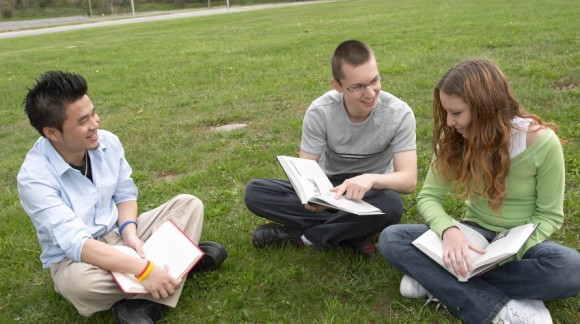Study Tips for All Ages

Get The Most Out of Studying
Performing well in school is the key to landing a good job and ensuring a bright future. In order to excel academically, you need to be smart about how you study. Children and adults can benefit from embracing effective study habits.
Study Tips for All Students
Whether you are helping your school-aged kids study, or you are studying for an advanced professional exam, below are five tips to help you improve study efforts and make your studying time more successful.
1. Create Flashcards: You benefit from writing out the information and from reviewing the flash cards repeatedly until you master the information.
2. Study Alone: While study groups can help you explore and discuss ideas, you need some alone time to focus on information and make sure you are giving the content the attention it deserves without distraction.
3. Focus Your Efforts: Concentrate on the important information. You cannot possibly memorize every single point, so spend time boiling down the information to the essentials. If you understand the concepts, the details with make more sense.
4. Get Enough Sleep. Staying up all night to study for a big test will likely undermine your efforts. Sleeping for a full eight hours ensures your brain is rested and ready to go for that big test day.
5. Avoid Cramming: Rather than trying to cram before the test, make an effort to learn the material as you go along. Then you will have a firm grasp of the material and can better understand the big picture.
Hitting the Books in College
For college students, smart study strategies can make the difference between mediocre grades and academic success. Below are three study tips specifically for college students.
1. Find alternative study spaces: Studying in the library, which is the # 1 top location for college students seeking a quiet place, can be a good thing if it is quiet. However, if it becomes crowded and noisy and loud with concentration, find another study area. Studying in different spaces can help you to better master the material.
2. Embrace study techniques that work for you: Many people try to categorize themselves as a visual or auditory learner, or right-brained or left-brained. If you have preconceived ideas about how you learn, then you might adopt study methods you think will help you, but really don’t work as well as they should. Instead, ditch the labels and focus on the techniques that have worked best for you in the past.
3. Attend class and pay attention: College students sometimes skip classes or find themselves distracted by cell phones and laptops. Electronics can hinder your ability to learn and understand important information.
Tips for Studying Science
Greatist, a health and fitness website for young people provides study tips derived from scientific studies and principles.
Below are some key study tips that are backed by recent scientific study:
1. Study for a few minutes right before bed. Your brain strengthens new memories when you sleep, so the information you study right before slumber may be easier to remember.
2. Space out your studying. A learning technique called “spaced repetition” breaks information down into smaller parts that are learned over time so you can better remember them.
3. Study in different places. Research suggests that when you read the same information in different locations, your brain forms new associations with the material and you form stronger memories.
4. Write the material out by hand. Research demonstrates that you remember things better when you write them out in longhand versus typing or reading them.
Remember, all the advice on how to study, does not mean a thing if you don’t have the motivation to apply it. Pick an environment that works for you with no distractions. Use the study skills you have learned over time to create a study plan with techniques that are sure to land you a grade worth bragging about. Remember, your grades depend on you (and only you).
Additional Resources
- Study Guides and Strategies, by Studygs.net
- Studying! Tips and the Science Behind It, by Studygeeks.blogspot.com
- How Should Students Study, by Regan A.R. Gurung and Lee l. McCann, by Association for Psychological Science
- The Best Study Skills, by Memory-Improvement-Tips.com
Videos
- Top 10 Student Tips for Studying, by USC Student Affairs, YouTube
- Studying Advice for College Students, by StudentMentor.org
Education
- Flashcards by Brainscape, free app for studying, iTunes
- iTunes U Free App, gives you access to the largest catalog of free education, by iTunes
Books
- How To Study, by Ron Fry, YouTube
- Study Smarter, not Harder, by Kevin Paul M.A., YouTube
- Study Skill to Enhance your Learning and Grades, by William Luckie available in paperback at Amazon
